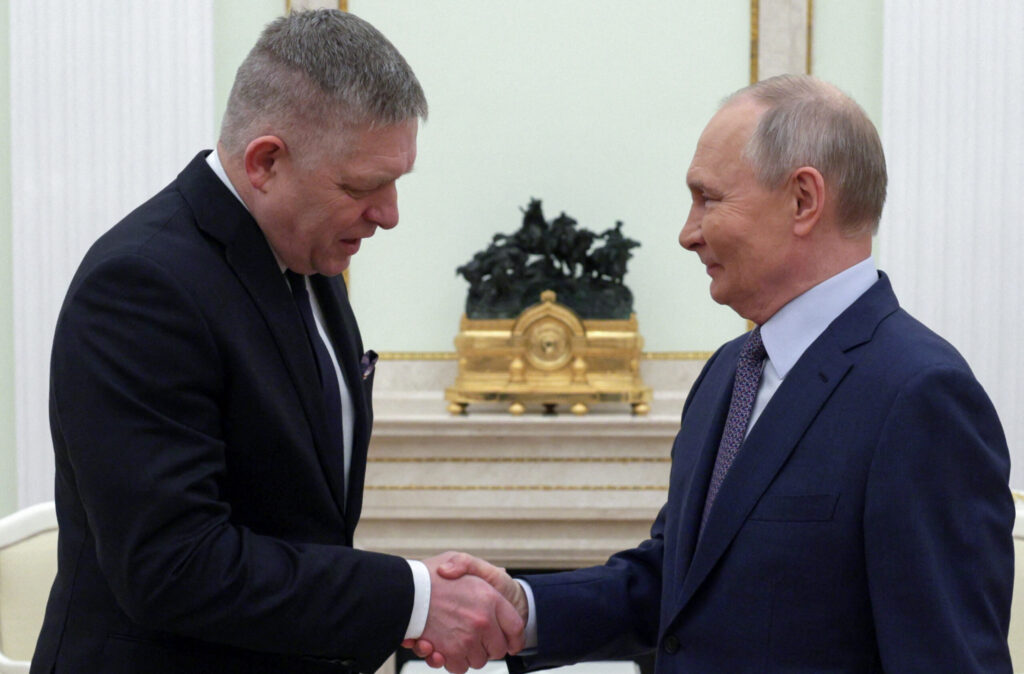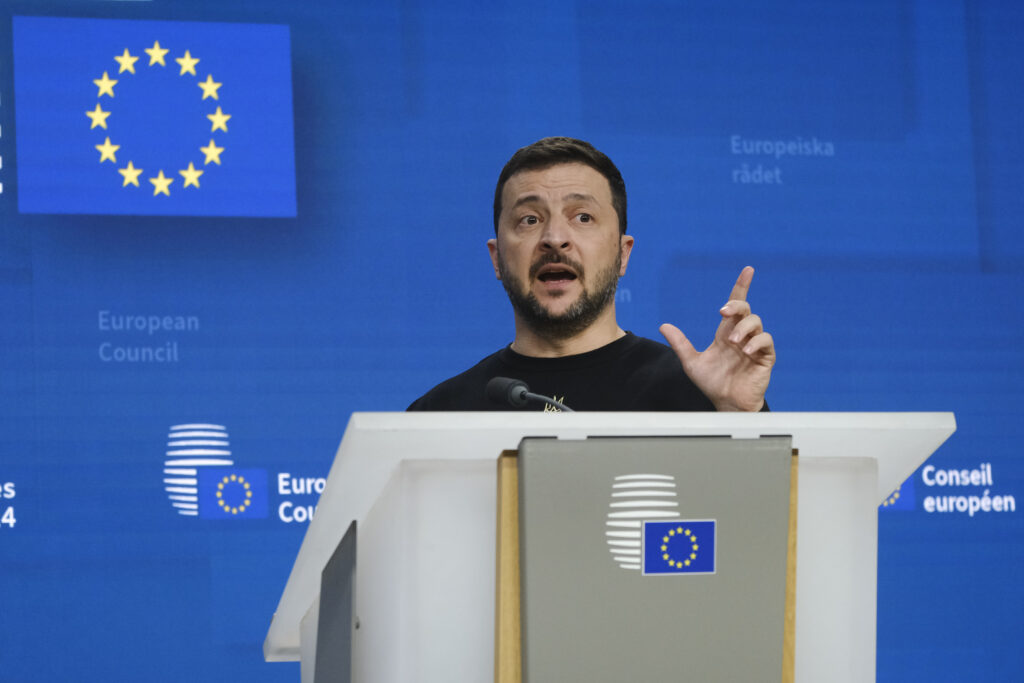Brussels – “A good and open discussion on the energy situation and the wider implications of the end of Russian gas transit through Ukraine.” This is what was stated in a meagre joint statement by Slovak Prime Minister Robert Fico and Energy Commissioner Dan Jørgensen at the end of a conversation in Brussels held this morning (January 9).
The issue is becoming incandescent for Bratislava, which depends heavily on cheap methane from Moscow. However, as Kyiv refuses to renew contracts with Gazprom that provided for its transit through Ukrainian territory, gas no longer reaches Slovakia. To this end, populist and pro-Russian Prime Minister Robert Fico has threatened Ukraine, escalating tensions between the two countries that, at least theoretically, should be on the same side of the fence.
The note further states that talks between the Slovak government and the EU executive will continue “at both the political and technical level.” It specifies that it was “agreed to establish a high-level working group” to unravel the issue and “identify options based on a joint assessment of the situation.”

The talks between Fico and Jørgensen were initially scheduled for Tuesday (January 7) but were cancelled at the last minute and postponed to today. In their original format, Ukrainian representatives were also scheduled to discuss in greater depth possible alternative solutions to ensure Slovakia’s flow of the gas it needs and to recompose the clash between Bratislava and Kiev.
As already announced by the premier earlier this month, Bratislava is reportedly considering a series of countermeasures that are de facto retaliation for Kyiv’s decision to suspend gas transit from the Federation to Central and Eastern European countries (first and foremost Austria, Slovakia, and Hungary) through its territory.
Among the options on Fico’s table are the cutting of subsidies to Ukrainian refugees present in the central European state, the end of electricity exports to Kyiv (whose infrastructure, under constant bombardment by Moscow, is unable to meet the needs of the country, which is consequently facing a severe energy crisis), and the veto—parallel to that threatened by the Hungarian premier Viktor Orbán—on Ukraine’s accession to the twelve-star club.
Ukrainian President Volodymyr Zelensky anticipated in unequivocal terms before the end of 2024 that, upon the natural expiration of supply contracts with Gazprom, the Russian state gas giant, he did not intend to renew them to stop subsidizing the Kremlin’s war of aggression. And so it was: taps closed since last January 1.

At that point, Bratislava began to speak up by threatening “consequences”. During a press conference following his meeting with the EU Energy Commissioner, Fico has declared that, should Ukraine continue to obstruct Russian fossil fuel imports, “the Slovak government will introduce tough reciprocal measures,” ventilating political and economic sanctions against a candidate country.
According to the Slovak leader, repeatedly criticized by European partners and Zelensky himself for his closeness with Vladimir Putin—in whose presence he went just before Christmas in an extreme attempt to settle the Russian gas stop—”we cannot ignore” the fact that “there is no EU legislation or sanctions system that prevents Ukraine from continuing gas transit; otherwise there would be a risk of “increasing tensions in the EU and bilateral relations” with Moscow.
Fico claims that his country will lose up to €500 million a year in transit fees (which it used to earn by pumping Russian gas to Czechia and Hungary). However, the Commission states from Brussels that closing the Russian-Ukrainian pipeline has not affected the Twenty-Seven’s energy supply or resulted in price hikes.
English version by the Translation Service of Withub







